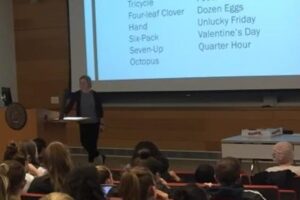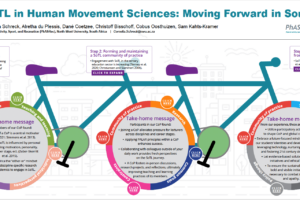Advice for New SoTL Researchers
- Posted by ISSOTL Admin
- Categories Blog
- Date June 6, 2017
- Comments 0 comment
Written by Jennifer Friberg, Cross Endowed Chair in SoTL and Associate Professor of Communication Sciences and Disorders at Illinois State University
Note: This blog was adapted from a post originally published on August 25, 2015 by the SoTL Advocate blog. It is reprinted here with permission from the editor of the blog.
Perhaps it’s due to the timing of the academic year ending (and summer planning for fall projects is underway!), but I have been asked several times lately for advice to help new SoTL researchers get their first SoTL projects up and running. In response to these requests, I’ve constructed this list as a starting point for advice for new SoTL researchers.
- Develop your research questions carefully to reflect the purpose of your inquiry. Often times, an investigator’s first foray into SoTL research is motivated by a reflection on their own teaching or by a concern regarding student learning. These are wonderful foundations for SoTL inquiry! Having a clear idea as to the purpose of your research is vitally important to creating a cohesive project. While this is not an exhaustive list, perhaps your research question might be developed to:
- measure changes in teaching or learning over time
- ascertain the effectiveness of a specific assessment, assignment, or pedagogical approach
- compare groups of students across a single class or across multiple course experiences
- Contemplate collaboration. While you may be seeking to systematically investigate some issue specific to a course you teach or to students you work with, it can be very useful to engage collaborators for your SoTL research efforts. It might be possible to seek out peers working to answer questions similar to yours for a larger SoTL project. Or, you can recruit students to serve as research collaborators for data collection, analysis, or writing.
- Seek mentorship. If you have not undertaken a SoTL research study in the past, consider seeking a mentor who does have SoTL experience to help you plan and execute your study. This mentor could become a collaborator or could simply serve as an experienced voice of support and guidance in helping you though your first SoTL project. You can seek mentors though your academic unit at your university, though a teaching/learning center on your campus, or through connections with others interested in teaching and learning in your discipline.
- Compose a well-written IRB protocol. IRB protocols for SoTL research can be tricky to write. It is critically important that any IRB describing SoTL research adequately account for issues related to privacy, coercion, and fairness. Think about how you can work around each of these issues to protect your participants. Seek help from your IRB representatives to write a solid protocol.
- Consider your data source(s) carefully. Your ability to collect data is limited only by your own lack of imagination! If you seek to represent student perceptions, you aren’t restricted to using a survey or questionnaire (though those can be effective!). Consider interviews or focus groups to gather data for analysis. If you’re attempting to determine the effectiveness of a pedagogical approach, consider looking at student produced artifacts or course portfolios as a potential source. If you can, seek out data from multiple sources to triangulate your findings and increase the strength of your research. Think carefully about your specific research question, determine the “best fit” data to address your question, and determine the best way to collect that data. Convenient data isn’t always good data, so be prepared to work to collect high-quality data to investigate your research question.
- Represent your SoTL project in a way that will be welcome in your own discipline. SoTL work can and should be represented in a way that reflects your own disciplinary practices and expectations. For some researchers, that may mean that SoTL research is shared in more “traditional” formats such as research papers, research notes, and oral/poster sessions at SoTL or disciplinary conferences. For others, SoTL can be represented though books, blog posts, wikis, and creative endeavors such as a video, a documentary, a play, a piece of artwork, or through dance. This is not meant to be an exclusive list, but simply one to make new SoTL researchers think about how they plan to share their SoTL work as that decision may influence other aspects of their research.
- Match your dissemination outlet(s) with your intended audience. Is the research question you’re seeking to answer with your study one that might appeal to a cross-disciplinary audience? If so, an outlet that allows a broad viewership is appropriate. Likewise, if the SoTL work you’re engaged in is most applicable within your own discipline, it would be wise to choose an outlet to share your work that is visible to your disciplinary peers. Don’t feel as though you need to only share your SoTL work in one place, however. With a bit of effort, most SoTL research can (and perhaps should!) be shared in multiple ways and forms.
If you have colleagues who are considering a SoTL research agenda, please share this list with them! And, as requested at the top of this post, please DO add any other advice you might offer to a new SoTL researcher in the comments below. We would love to expand this list to reflect the ideas of our blog’s readers!
Next post




